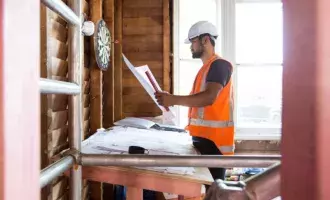Planning Performance Agreements (PPAs) were formally introduced to the planning system in April 2008, to provide a more structured and collaborative approach for handling significant planning applications.
Over the years, these agreements have been periodically reviewed and updated. The latest consultations under “An Accelerated Planning System” highlighted the importance of PPAs in improving the efficiency and quality of the planning process, particularly for major commercial applications. Although the current government has not advanced these proposals, the National Planning Policy Framework continues to advocate for PPAs as a means to achieve a faster and more effective application process.
What is a PPA?
A PPA is a project management tool that allows all parties to agree on timescales, actions, and resources for handling planning applications. PPAs are usually agreed upon at the pre-application stage and relate to the entire development process, from pre-application planning advice and community engagement to application progress meetings and post-application stages, governing how reserved matters or approval of details will be handled.
Key benefits of PPAs
The key benefits of a PPA include:
- Early identification of issues: By recognising key issues and constraints early on, PPAs lead to improved application submissions.
- Realistic timetables: They establish realistic and predictable timetables, with structured deadlines and action points.
- Improved collaboration: Enhanced collaborative working between key stakeholders.
- Better management: Improved overall management of advice at pre-application and post-application stages.
- Accountability and transparency: Greater accountability, transparency, and communication.
- Dedicated resources: Better project management with a guarantee of dedicated council resources, resulting in shorter timescales for decision-making and improved development outcomes.
- Removal of statutory timescales: Removal of statutory timescales for the determination of applications.
- Timely responses: Greater commitment from relevant consultees to respond in a timely manner, particularly internal consultees.
- Community engagement: Better commitment to community engagement and consultation, enabling communities to influence planning decisions.
- Cost recovery: Ability to recover costs through income generation, reducing the financial burden on council resources to deliver a high-quality service that meets the needs of its customers, and the ability to engage specialist staff.
Current use of PPAs
Most Local Planning Authorities (LPAs) across the UK offer a PPA service, yet the uptake among applicants varies significantly nationally. According to government data, 1,096 applications were accompanied by a PPA in the year ending 31 December 2024. The majority of these applications were concentrated in the East of England (259), London (195), Southeast (233), and West Midlands (241) regions, with comparatively minimal uptake in other regions.
Challenges faced by LPAs
Despite widespread support for PPAs within the sector, the Planning Advisory Service has identified several challenges that some LPAs face, which may contribute to the national disparities in PPA usage. Key challenges include:
- A lack of understanding of the benefits of pre-application advice and PPAs, particularly among councillors and across councils
- Resource constraints affecting an LPA's confidence in meeting its PPA obligations
- Inadequate project management skills to confidently manage a complex project
- Inflexible service offers that do not meet applicants’ needs
- Difficulty in calculating and setting fees and charges to effectively recover costs
- Hesitancy in establishing a PPA service due to its perceived time-consuming nature and significant change in services offered
- Ineffective monitoring processes to track time spent on pre-application advice and PPAs
- Lack of monitoring or review of the outcomes of pre-application advice or PPAs on the quality of built development
- Challenges in effective internal and external collaboration due to separate fee-charging arrangements for some consultee advice and the non-mandatory nature of pre-application advice responses from statutory consultees in most cases.
Addressing the challenges
While the challenges are significant, they are not insurmountable and can be addressed through various strategies:
- Stakeholder engagement: Implementing a comprehensive engagement programme with both internal stakeholders (councillors, finance, other council departments) and external consultees to foster a collaborative work environment.
- Resource investment: Exploring opportunities to invest in additional posts funded by PPA income or engaging with a resilience partner to manage variable service demands.
- Training: Providing basic project management training to enhance the capabilities of LPA staff.
- Utilising resources: Leveraging free resources available on the Planning Advisory Service (PAS) website or engaging external providers to implement effective PPA services.
- Monitoring system implementation: Developing basic systems to monitor resource allocation and track outcomes effectively.
How we can help
In the last couple of years, our team has processed 30 applications under a PPA, facilitating the development of approximately 13,715 new homes, 250,000m2 of commercial floorspace, 200 MW of renewable energy, and securing more than £14.2m in S106 contributions.
Our service enables our customers to fill skills and capacity gaps, accelerating major planning applications through a fully self-funded resilience service. We have partnered strategically on important schemes, enhancing the quality of development proposals and improving customer experience by reducing risks and ensuring more reliable timelines.
Through our agreements, we provide contractual assurances that the services offered within the PPA will meet customer expectations, even if you do not have the in-house capacity or capabilities. Our team brings a variety of specialisms, including dedicated cases officers, urban design and viability expertise, which are integral components of our PPAs.
Our unique resilience service, fully funded by the developer has contributed approximately 10,500 hours or 1,400 days of Principal / Associate officer time to our local government clients without incurring costs to the LPA or affecting their daily operations.
Looking ahead
The government is focused on accelerating the planning system through reforms to support growth ambitions. The demand on LPAs to speed up decision-making for planning applications is expected to increase. PPAs offer LPAs a way to maintain control over application timelines and processes while providing a flexible, bespoke service to developers. This approach promotes collaborative work and improves the quality of decisions made.
Find out more
Contact us today to learn how our planning and regeneration services can support your team.

Jonathan Pennick
Business Development Director – Planning and Regeneration
Jonathan Pennick is a Business Development Director for Capita Public Services. Jonathan is a chartered Member of the Royal Town Planning Institute, with over 20 years’ experience of delivering planning services to local government clients.







